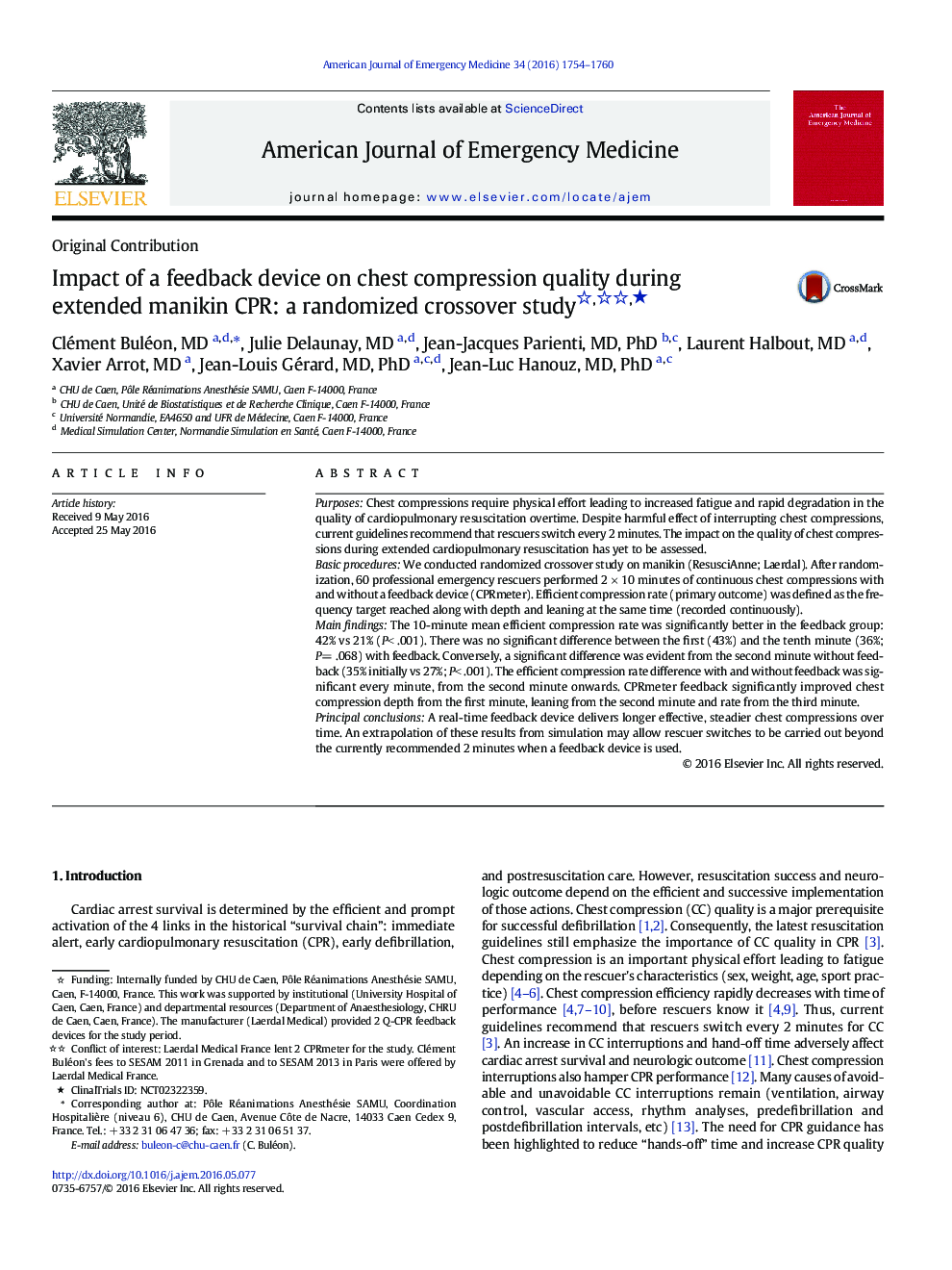| Article ID | Journal | Published Year | Pages | File Type |
|---|---|---|---|---|
| 3223019 | The American Journal of Emergency Medicine | 2016 | 7 Pages |
PurposesChest compressions require physical effort leading to increased fatigue and rapid degradation in the quality of cardiopulmonary resuscitation overtime. Despite harmful effect of interrupting chest compressions, current guidelines recommend that rescuers switch every 2 minutes. The impact on the quality of chest compressions during extended cardiopulmonary resuscitation has yet to be assessed.Basic proceduresWe conducted randomized crossover study on manikin (ResusciAnne; Laerdal). After randomization, 60 professional emergency rescuers performed 2 × 10 minutes of continuous chest compressions with and without a feedback device (CPRmeter). Efficient compression rate (primary outcome) was defined as the frequency target reached along with depth and leaning at the same time (recorded continuously).Main findingsThe 10-minute mean efficient compression rate was significantly better in the feedback group: 42% vs 21% (P< .001). There was no significant difference between the first (43%) and the tenth minute (36%; P= .068) with feedback. Conversely, a significant difference was evident from the second minute without feedback (35% initially vs 27%; P< .001). The efficient compression rate difference with and without feedback was significant every minute, from the second minute onwards. CPRmeter feedback significantly improved chest compression depth from the first minute, leaning from the second minute and rate from the third minute.Principal conclusionsA real-time feedback device delivers longer effective, steadier chest compressions over time. An extrapolation of these results from simulation may allow rescuer switches to be carried out beyond the currently recommended 2 minutes when a feedback device is used.
